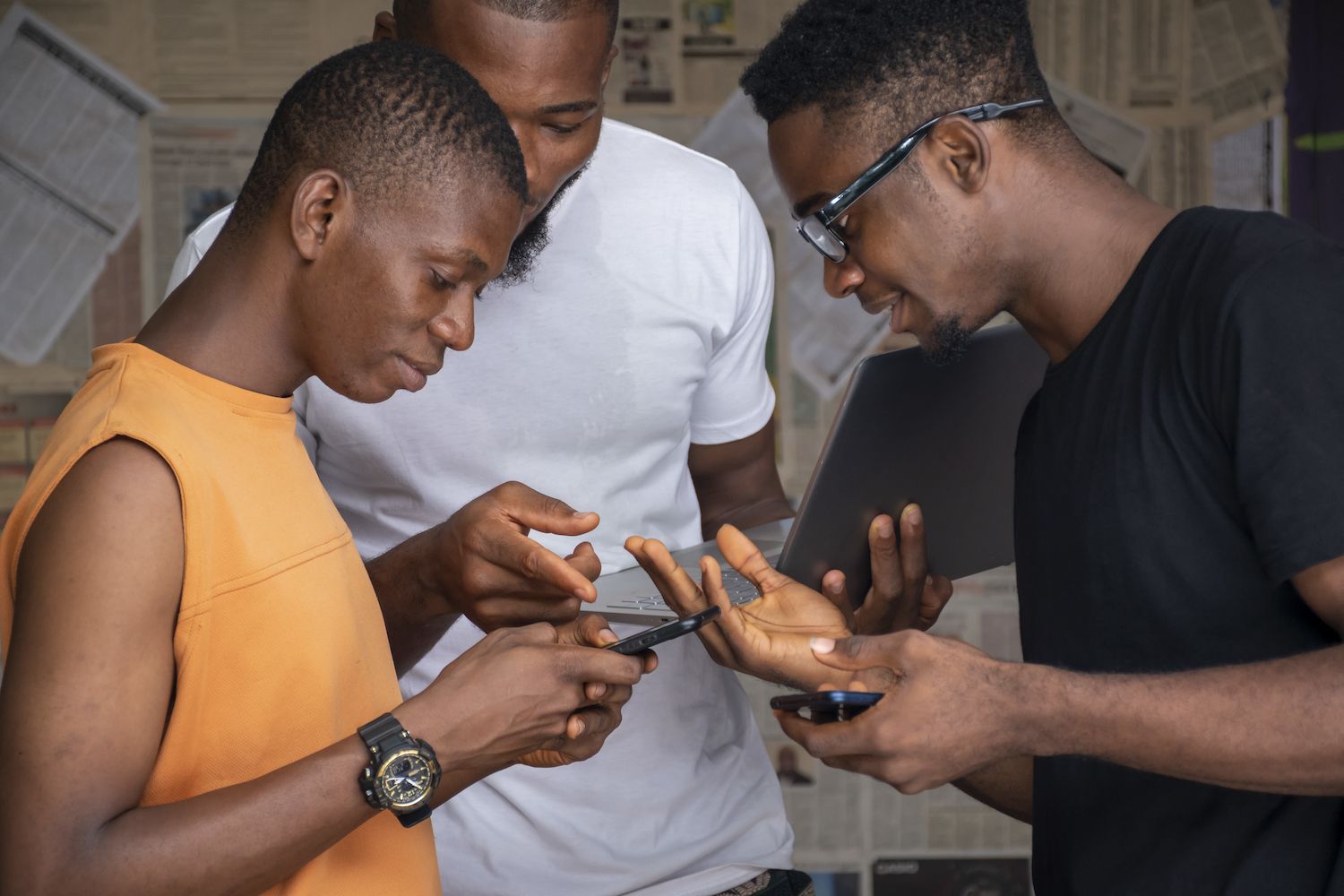calendar
The R2vgOULNXVhGzUq5YeQ Cherie Hu of Water and Music discusses Web3 at Consensys 2022.
Water and Music, the publication and study DAO (decentralized autonomous organisation) creating the guide for innovators to the world of music was created to facilitate conversations between people in music tech. Now they're going one step further, actively engaging the industry hive of minds to develop research initiatives and rewards all those who is involved.
"My reason for having this group is to help others understand the world better, and then also understand their role within it," begins Cherie Hu, founder of Water and Music. She hopes to assist people become better prepared so that they have the best influence on the industry they work in. One of her main mantras that she has used, particularly in the realm of business reporting, has written in a way that is actionable. "At the end of every article, you'll get an idea about what you can do for your business or you can improve your job. Making sure that you are able to bridge the gap between what people in the community need, and our writing, is very important," Cherie explains.
Today, the Water and Music team has grown to hold regular 'research sprints' of between 10 and 12 weeks in which they pick a subject to glean as much information as they can to help their customers. For these research sprints, when they've settled on a topic, they go out and talk to the Water and Music community: "We seek out 'What's your current concerns?', and then crowdsource those responses. Then the structure of our report comes directly from those needs," she tells me.
In true fashion, the Water and Music research sprints are extremely community-focused and collaborative. "It's an ideation process that is bottom-up and we involve a lot of people in helping with the editing research," Cherie says. As of now, this Water and Music community has issued two papers under the collaboration structure. Keeping on-trend, they sold NFTs in retroactive fashion, which meant that if people were interested in supporting their research they were able to - and that the profits were divided evenly among the participants. "It's obvious for me that the results of that research was so far superior than if a singular person tried to research all the things. This research would not be fully completed!" she smiles. "It's convinced me of the value of not just creating connections, but more importantly, combining knowledge."
Returning the power
"It's more of academic term, but I think it's really applicable to Water and Music: we're a community of practise," Cherie continues. "The term was coined in 1991 [by cognitive sociologist Jean Lave and educational theorist Etienne Wenger] and it is a term used to describe a group of individuals that don't just have a shared interest, but who come together to focus on learning how to do something better."
She explains that this can be the case for people working in a similar industry, or in similar roles across industries. These people communicate regularly, and exchange knowledge. Water and Music will contribute in more than just creating tools and media as well as facilitating peer-to-peer learning: "That'll be a really important part of our future, breaking down the information silos in the industry of music and encouraging the public to be more collaborative," Cherie adds.
There's an element of 'taking control back' with this. Cherie wants to reassure musicians that they are more in influence than they think: "Certainly, in the world of streaming, there's increasing consolidations that are dominated by Spotify along with other tech giant companies. Rates of royalties are dropping -- well, it's all going downwards! -- so we're giving artists the ability to comprehend the many different options. We're equipping artists and the individuals around them to think creatively."

Water and Music team Water and Music team
Cheire says that the expression "community of practice" initially was a reference to professional groups, but it can also be relevant to creative communities, such as this one. The focus of Water and Music the exact goal is to promote the music industry, and that comes down to the personal motivation. "I'm driven by this job since I was a child playing piano. I spent lots of being around classical music, but I love interacting with all artists as well as hearing their thoughts about where technology is heading," Cherie continues. "Hopefully, whatever knowledge we impart can help the artists and teams understand tech better, to enable them to create cool artwork!"
Through the rabbit hole
The company's latest deep-dive analysis has focused on the mess that is Web3 which is the concept of the next generation of the internet built using blockchain technology. "We're looking to comprehend the State of the Union for tech trends that affect music, specifically those that are very noisy," she explains. "Web3 is the perfect example, because there's so much confusion and no one knows exactly the exact nature of what's going on. This is the biggest rabbit hole and it just keeps going down. Then it's like, "What's happening? ?'!"
In the world of music it is not surprising that one of the biggest worries is that of fan-generated sentiment. "I think that's the number reason that lots of artists are not doing NFTs currently: out of fear of the backlash of the fans," she muses. "We did a report on concerns around Web3. Naturally, in the music industry there are many concerns around licensing as well as IP (IP) as well as NFTs. It's a whole chapter!"
Tlg9Yi9H8w9qUpATyR6b It was a Water and Music meetup at the NFT.NYC event
The next collaborative report within the community is in the process of being completed. "We're investigating even more obscure subjects right now, like the metaverse -- however that's defined!" Cherie jokes. "We're not even trying to build any thing right now. We're simply trying to understand what people's opinions are about it, and also what they have a hard time understanding." The book includes interviews with artists, startups' founders, as well as industry experts about how they define the metaverse and what they are trying to accomplish in it, and also what's proving to be challenging.
Cherie states that her goal is to combine this research by creating online tools that tackle these issues. "We have done this in the past with a few Web3 themes that we already have, like the secondary sale of music via royalty shares and NFTs. A few smart contracts say that between 10 and 20% of the secondary sales must go back to the original creator and a lot of users have been expressing the idea as a profit. But I think the reality is that the overwhelming majority of NFT's don't generate an additional sale," Cherie explains. Cherie thinks the value lies due to the immediate relationship and connection that the NFT represents, not in the possibility of having something to sell onwards again in the future.
Along with the report, Water and Music will be creating a dashboard for tracking where customers can enter their NFT collection to determine whether there were any additional sales, and if yes and how the NFT is performing in the marketplace. "We would like to create more interactive tools: it's similar to interactive data journalism particularly for artists as they are probably the ones who are thinking the most about the release and pricing their NFT drops. We're building essential frameworks and tools to help people do this analytical work themselves."
Conflicting visions
Cherie notes that some terms that are new and exciting become more complicated and less clear with time "For the metaverse, for instance, there's a massive gap between how the metaverse has historically and conceptually been defined, from back in the '60s." She explains her Water and Music team is developing a model for understanding historical definitions of the metaverse, and then the gap between expectations and actuality.
"The first sci-fi books with a metaverse reference had the vision of an connected virtual and IRL worlds. We are so far off from this right currently. However, at the same time, in the music industry the artists say "I've launched my personal metaverse!' even though they essentially mean an imaginary world.
"There is a direct conflict between visions of the metaverse," she continues. "You can find Meta [Facebook's holding firm] and Epic Games on one side they are both centralized, and one entity owns everything however, there's the vision of a Web3-forward decentralized, metaverse with interoperable assets and identities. It's logical to try at least experimenting with blockchain technology and the role it plays in facilitating that, but that directly opposes Facebook's stance."
Cherie concludes that the metaverse "just been transformed into a nebulous term that anybody can utilize for their own benefit" and she wants to cut through the nonsense. This is in perfect alignment with Cherie's raison d'etre: Water and Music can critically and analytically dig into the issue, and be able to provide practical insights to advise people about how they should react. This has real-world use cases in addition, like helping artists and their team to evaluate partnering with certain metaverse-based platforms.

The Water and Music meetup at the NFT.NYC conference.
Cherie closes in usual fashion, encouraging collaboration within and within Water and Music community. "In the next couple of months, we'll be rolling out interviews with artists platform owners, artists, and startups founders. The metaverse research will likely continue into the summer into the fall and so if people are looking to get involved in that, let me know. If you have suggestions for people to interview we're all ears!"
To get involved, join us on Twitter. Cherie to get involved, follow her on Twitter: @water andmusic. To become a member of the Water and Music community, and gain access to the community's in-depth research reports and Discord server, go to waterandmusic.com/membership.
